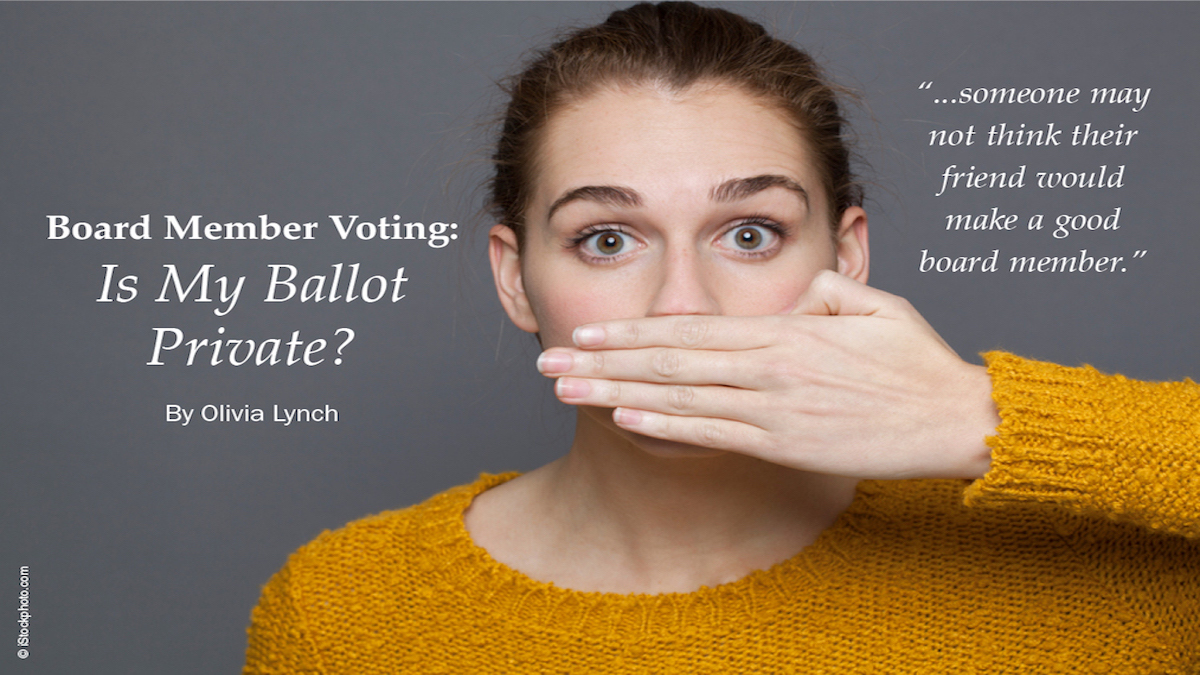
Board Member Voting: Is My Ballot Private?
Feature Story
Board Member Voting: Is My Ballot Private?
Neighbors in a community may be friends, however, it’s possible someone may not think their friend would make a good board member. This puts them in a funny position when their friend asks them to sign a proxy for their community’s board election. Can owners in condominium and homeowner associations vote with the confidence that their vote will be confidential?
According to attorney David Byrne, of Ansell, Grimm & Aaron, PC, in Princeton, New Jersey, a ballot or proxy is often not private at all, nor must it be private by law.
“A board can setup a mechanism whereby votes are confidential at the time of voting” said Byrne, “But, a community’s election is not like the presidential election, for example. It is instead a corporate election and there has to be a record of who voted, and how they voted in case the election is challenged.” Therefore, a ballot can never be completely private. Byrne explained that typically, voters are required to sign their ballot. Obviously then, it may be seen. In New Jersey, a ballot is likely not an association “book or record;” and thus not subject to mandatory owner inspection.
In the case of a proxy, the authority to represent someone else in voting, the ballot can still be viewed, if needed. “Often, boards can limit the knowledge of people counting the votes, but if a ballot is retained, there has to be a way to go back and see every ballot,” he said.
Laws do exist in terms of the review and challenge of board elections which allows owners to bring action. These laws operate on a state-by state basis. Byrne cited two New Jersey laws for reference. The first, the Condominium Act of New Jersey, is “an act concerning interests in real property and providing for the creation and regulation of horizontal property regimes.” And the New Jersey Nonprofit Corporation Act, which is “a law governing nonprofit corporations and regulates the conduct of lawful, nonprofit activities.” This law includes a specific position empowering a member to challenge an election in court. Most states have similar statutes, and it is in these laws, along with a particular community’s governing documents that the appropriate actions of a board vis a vis elections are outlined.
“Often it’s the case that it’s difficult to get people to run, let alone battle over votes,” said Byrne. Thus, he noted, lawsuits related to the results of an election are rare.
Tags: Article
Trackback from your site.